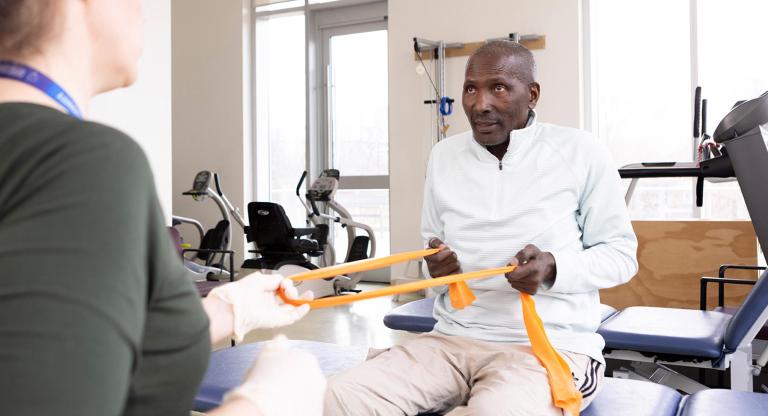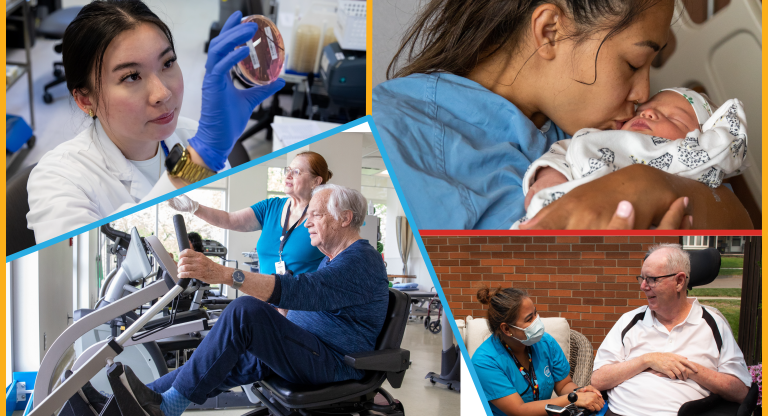Magnetic Moments: Our leadership in diabetes education

Magnetic Moments is a series of stories that highlight the high quality care and experience that makes Mount Sinai Hospital the only hospital in Canada to have Magnet™ designation.
It’s estimated that 3.6 million Canadians are living with diabetes. Managing this disease is important because improperly treated or mismanaged diabetes can lead to a variety of complications including blindness, kidney failure, amputation and an increased risk for heart failure and stroke.
At Mount Sinai Hospital’s Leadership Sinai Centre for Diabetes, nurses and dietitians provide clinical support for inpatients and outpatients with the goal of preventing/slowing the progression of the complications of diabetes. In addition to educating and treating patients, the team also takes a leadership role in training other health care professionals in diabetes management.
“Diabetes is a chronic disease, and it really does take an interprofessional team to help patients manage their condition,” says Gail MacNeill, clinical nurse specialist and manager at the Centre.
As leaders in the diabetes community, all nurses and dietitians within the Leadership Sinai Centre for Diabetes achieve and maintain their national certification in diabetes education. Currently, 100 per cent of the LSCD clinical team are certified diabetes educators and have maintained their certification for at least the past 15 years.
“Our leadership in mentoring others to achieve the Canadian Diabetes Educator Certification is really what differentiates us from other diabetes centers,” says Christine Opsteen, nurse practitioner. “In playing this mentorship role, it also means we are closely tied to the research and practice changes that positively impacts our patients.”
Specialty certification as a Diabetes Educator equates with expert, high-quality, competent professional practice. It is a voluntary practice that provides formal recognition of specialized knowledge, skills, and clinical experience.
Following initial certification health care professionals are required by the Canadian Diabetes Educator Certification Board to maintain their certification every five years, either by writing the examination or completing an extensive portfolio that consists of 250 required credits obtained from a wide list of diabetes related continuing education activities, presentations or teaching.
“Having this certification lends credibility to our work,” says Christie Hamilton, dietitian. “It means not only that we’ve achieved expertise, but we’ve maintained it.”












